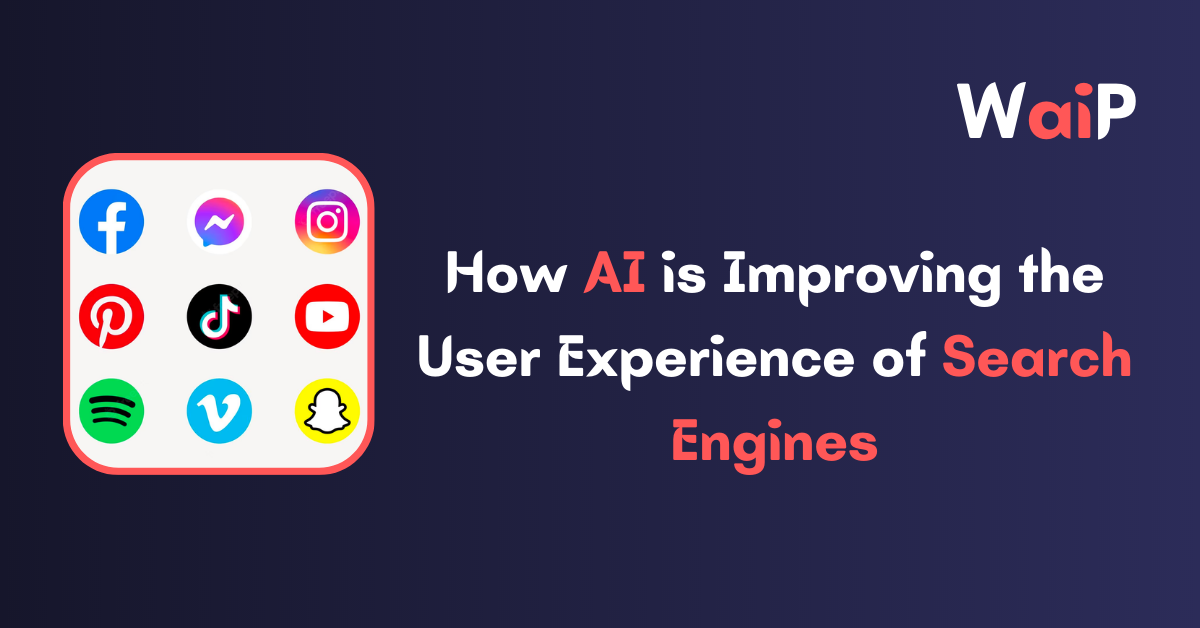The advent of artificial intelligence (AI) has profoundly transformed the world of technology, particularly in the realm of search engines. Gone are the days of basic keyword searching. AI now curates a more personalized, engaging, and efficient user experience.
This blog post delves into how AI is improving the user experience of search engines, making them more intelligent, responsive, and user-centric.
AI’s Role in Understanding Search Queries
Understanding the user’s intent behind a search query is paramount to delivering relevant results. Artificial Intelligence comes to the rescue here with techniques such as Natural Language Processing (NLP), machine learning, and statistical analysis.
NLP aids in comprehending the intent and context of a query, analyzing the keywords used. Machine learning then identifies patterns in user search behaviors, enhancing the query understanding accuracy.
Lastly, statistical analysis keeps track of query popularity and spots new trends.
AI in Ranking Results
Ranking results is a complex process that heavily relies on AI. Various factors come into play, including the relevance of the results to the query, content quality, user’s past search history, and even user’s location.
While relevance holds the highest importance, gauging content quality can be challenging. AI helps by analyzing factors like the source credibility, content’s depth, and freshness.
Personalizing results based on past search history and location further refines the ranking process, making the results more useful for the user.
Personalizing Results with AI
AI empowers search engines to deliver personalized search results based on users’ interests, location, and more.
The engines analyze the users’ past search history, visited websites, social media interactions, etc., to identify their interests.
Besides, the user’s location helps deliver locally relevant results. Other factors like the user’s device, the time of day, or the user’s current activity also play a role in personalizing the search results.
AI in Generating Snippets
Snippets, the short summaries displayed beneath search results, are an integral part of a search engine’s user experience. AI, through NLP techniques, understands the content of a webpage and generates a relevant snippet that aligns with the search query. This informative summary gives users a good idea about the page content, aiding them in deciding whether to visit the webpage or not.
Improving User Experience through AI
AI significantly enhances the user experience of search engines. Apart from delivering relevant results, personalizing the experience, and creating informative snippets, AI helps facilitate voice search and makes search engines more accessible on mobile devices. These AI-driven improvements make interactions with search engines more convenient and intuitive.
Specific Implementations of AI in Search Engines
Different search engines utilize AI in various ways to improve the user experience:
- Google‘s RankBrain: An AI-based machine learning algorithm, RankBrain, interprets search queries and the user’s past search history to deliver more accurate results.
- Bing‘s QnA Maker: Bing employs QnA Maker, an AI technology that comprehends natural language questions to provide precise answers.
- DuckDuckGo‘s BERT: DuckDuckGo uses BERT (Bidirectional Encoder Representations from Transformers), an NLP model that understands the context of words and phrases to improve search result relevance.
Conclusion
Artificial intelligence is rapidly evolving, and its contributions to the world of search engines are undeniable.
By understanding search queries, ranking results effectively, personalizing results, generating informative snippets, and improving overall user experience, AI is making search engines more intelligent and user-friendly.
As AI technology advances, we can expect more innovative applications that will further enhance search experiences. From voice search to personalized recommendations, AI is transforming the way we interact with search engines, making each search an experience in itself. With AI at the helm, the future of search engines is undoubtedly exciting and promising.

![Best Mobile Games Your Should Try in 2024 [Trending Now] 2 Best Mobile Games](https://wideaiprompts.com/wp-content/uploads/2024/03/Best-Mobile-Games-330x220.webp)



![Best Mobile Games Your Should Try in 2024 [Trending Now] 9 Best Mobile Games](https://wideaiprompts.com/wp-content/uploads/2024/03/Best-Mobile-Games-150x150.webp)


